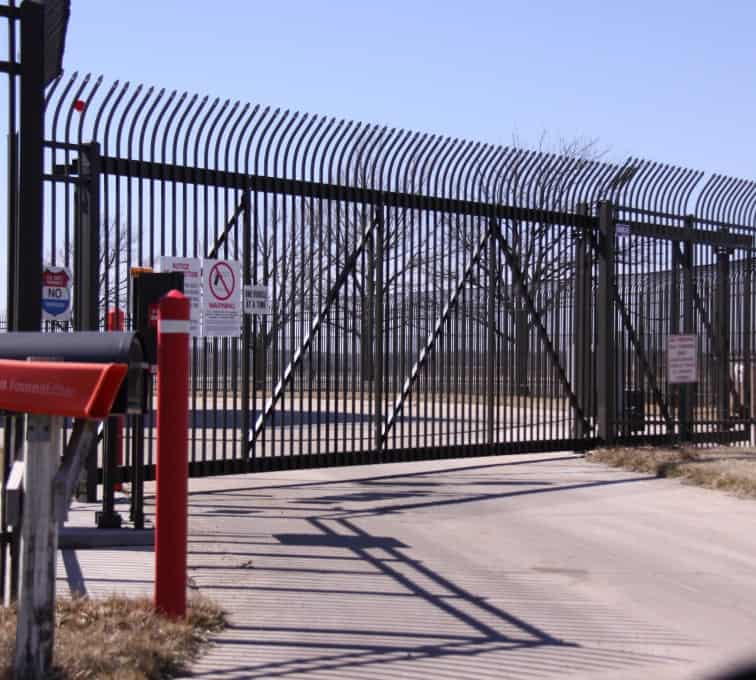[ad_1]
Electric gate openers have become a staple in modern homes and businesses. They provide convenience and security by allowing the opening and closing of gates with just a push of a button. However, like any other machine, electric gate openers are prone to faults and damage over time. Knowing the common faults in electric gate openers and how to fix them will save you from unnecessary expenses and prevent any inconvenience that may arise from a malfunctioning gate.
Common faults in electric gate openers
1. Dead battery
The battery is the heart of an electric gate opener. If the battery is dead or fails to charge, your gate will not operate. Signs of a dead battery include slow operation, erratic movement, or complete failure to operate. Before replacing the battery, check if it’s been connected properly, and check the voltage level using a voltmeter.
2. Obstructions
Obstructions can cause an electric gate opener to stop functioning properly. The gate may hit an object or a person, which can damage the gate or cause injuries. Regularly check the gate path for debris, leaves, and other objects that may have accumulated. Inspect the safety photocell, which stops the gate from closing if it detects an obstruction.
3. Misaligned photo eye sensors
The photo eye sensors are essential safety features in electric gate openers. They are responsible for detecting obstacles and preventing the gate from closing accidentally. Misaligned sensors can cause a gate opener to malfunction. Make sure the sensors are clean and pointing at each other. Adjust them as necessary to ensure they’re aligned properly.
4. Loose or worn-out parts
Electric gate openers have numerous parts that can loosen or wear out over time. Loose or worn-out parts can cause noise or erratic gate movement, eventually leading to a complete malfunction. Inspect the rollers, hinges, bolts, and chains regularly. Tighten any loose screws or bolts and replace any worn-out parts promptly.
5. Damaged circuit board or motor
A damaged motor or circuit board is a common cause of electric gate opener faults. Signs of motor or circuit board damage include a gate that operates sluggishly or not at all. If you suspect that your gate opener’s motor or circuit board is damaged, have a professional inspect it, and replace any faulty components.
How to fix common faults in electric gate openers
1. Dead battery
If your gate opener’s battery is dead, replace it with a new one of the same type and model. Make sure the battery is properly connected, and charge it fully before using the gate opener.
2. Obstructions
Remove any debris or objects that are obstructing the gate path. Check the safety photocell to ensure it’s functioning correctly.
3. Misaligned photo eye sensors
Clean the sensors, and realign them as necessary. Ensure that the alignment is precise to prevent further malfunctions.
4. Loose or worn-out parts
Tighten any loose screws or bolts, and replace any worn-out parts like rollers or chains as soon as possible.
5. Damaged circuit board or motor
If you suspect that your gate opener’s motor or circuit board is damaged, have a professional technician inspect it and replace any faulty components.
FAQs
1. How often should I maintain my electric gate opener?
It’s recommended that you schedule maintenance at least twice a year. However, the frequency of maintenance depends on various factors such as the frequency of use, your gate opener model, and your environment’s weather conditions. Regular maintenance can extend the life of your gate opener and reduce the likelihood of faults.
2. How can I ensure that my electric gate opener lasts longer?
Keep your gate opener clean, regularly inspect and maintain it, and follow the manufacturer’s instructions when installing or using it. It’s also essential to hire a professional technician if you’re unsure of how to maintain or repair it to prevent further damage.
3. What should I do if my electric gate opener is making strange noises?
Strange noises like grinding, squeaking, or grinding can be a sign of loose or worn-out parts. Have a professional technician inspect and repair your gate opener to prevent further damage.
4. How can I prevent future gate opener faults?
Regular maintenance, inspections, and prompt repair of wear and tear are essential to ensure your gate opener functions correctly. Additionally, avoid misusing or overburdening your gate opener, check for power surges, and protect it from harsh weather conditions.
Conclusion
Electric gate openers are essential for modern homes and businesses. However, they’re not immune to faults and damage. Understanding the common faults in electric gate openers and how to fix them will save you money and prevent any inconvenience that may arise from a malfunctioning gate. Regular maintenance, inspections, and prompt repair of wear and tear can extend the life of your gate opener and ensure its proper function.
[ad_2]


